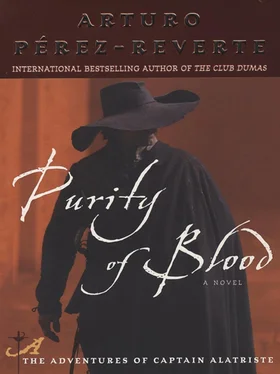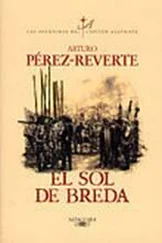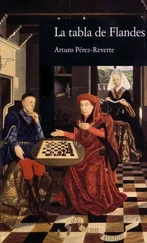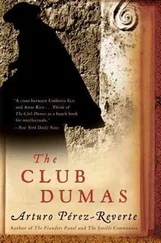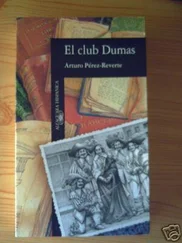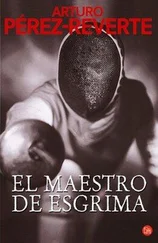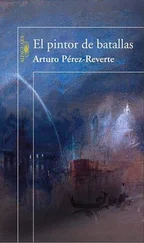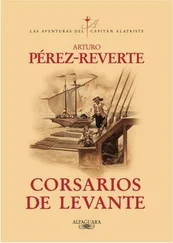Arturo Pérez-Reverte - Purity of Blood
Здесь есть возможность читать онлайн «Arturo Pérez-Reverte - Purity of Blood» весь текст электронной книги совершенно бесплатно (целиком полную версию без сокращений). В некоторых случаях можно слушать аудио, скачать через торрент в формате fb2 и присутствует краткое содержание. Жанр: Старинная литература, на английском языке. Описание произведения, (предисловие) а так же отзывы посетителей доступны на портале библиотеки ЛибКат.
- Название:Purity of Blood
- Автор:
- Жанр:
- Год:неизвестен
- ISBN:нет данных
- Рейтинг книги:3 / 5. Голосов: 1
-
Избранное:Добавить в избранное
- Отзывы:
-
Ваша оценка:
- 60
- 1
- 2
- 3
- 4
- 5
Purity of Blood: краткое содержание, описание и аннотация
Предлагаем к чтению аннотацию, описание, краткое содержание или предисловие (зависит от того, что написал сам автор книги «Purity of Blood»). Если вы не нашли необходимую информацию о книге — напишите в комментариях, мы постараемся отыскать её.
Purity of Blood — читать онлайн бесплатно полную книгу (весь текст) целиком
Ниже представлен текст книги, разбитый по страницам. Система сохранения места последней прочитанной страницы, позволяет с удобством читать онлайн бесплатно книгу «Purity of Blood», без необходимости каждый раз заново искать на чём Вы остановились. Поставьте закладку, и сможете в любой момент перейти на страницу, на которой закончили чтение.
Интервал:
Закладка:
Finally, Captain de la Cuesta, himself as bloody as an Ecce Homo, had said, “Caballeros, we have done all we can; let any man who can save his hide.” My father and another short, tough soldier from Aragon, one Sebastián Copons, had helped Saldaña and Diego Alatriste get back to the Spanish trenches, with every Dutchman in the world firing at them from the walls. As they ran, they cursed God and the Virgin, or commended themselves to them, which in such cases was one and the same thing. And still someone had the time and fortitude to pick up poor Ortiz-Ruiz’s banner rather than leave it on the bulwarks of the heretics, along with his corpse and those of two hundred comrades who were not going on into Ostend, or back to the trenches—or anywhere at all.
“Ortiz, I think it was,” Saldaña concluded finally.
They had, a good year later, avenged the lieutenant and the two hundred other men, as well as those who left their hides in earlier, or later, assaults upon the Dutch del Caballo redoubt. Finally, after the eighth or ninth attempt, Saldaña, Alatriste, Copons, my father, and the other veterans of the Tercio Viejo de Cartagena, succeeded in battling their way inside the walls on the strength of nothing but bollocks. The Dutch began shouting Srinden, srinden, which I think means “friends,” or “comrades,” and then something that sounded like Veijiven ons over : “We surrender.” And that was when Captain de la Cuesta, who was deaf to any foreign tongue but who had a stupendous memory, said, “We do not understand your srinden or veijiven —or anything your whoring mothers taught you—but we will show no mercy, you hear that? Not one heretic left alive.” And when Diego Alatriste and the others at last raised the shredded, battle-worn cross of Saint Andrew above the bulwarks—the very same one poor Ortiz had carried before departing this world tangled in his own guts—they were drenched in the Dutch blood dripping from the blades of their daggers and swords.
“Someone told me you are going back,” Saldaña said, after he had brought us up-to-date.
“I may.”
Although I was still dazzled by the bulls, my eyes were filled with the people pouring out of the plaza and along Calle Mayor: Fine ladies and gentlemen rapped out “Fetch my coach” and then climbed into their carriages and rode away, and caballeros on horseback, and elegant courtiers headed toward San Felipe or the flagstone courtyard of the palace. At the time, I listened very carefully to the chief constable’s words. In that year of 1623, the second in the reign of our young King Philip, the war in Flanders had resumed, creating the need for more money, more tercios, and more men. General Ambrosio Spínola was recruiting soldiers throughout Europe, and hundreds of veterans were hurrying to enlist under their old flags. The Tercio de Cartagena, decimated at Julich at the time my father was killed, and totally annihilated a year later in Fleurus, was being re-formed. Soon it would be following the Camino Español, a familiar route to the Low Countries, to play a part in the siege of the stronghold of Breda—or Bredá, as we called it then. Although the wound Diego Alatriste had received in Fleurus had not completely healed, I was aware that he had been in contact with old comrades, with the intent of returning to its ranks. In recent days, the captain had made his living as a sword for hire, and despite that—or precisely because of it—he had made some powerful enemies at court. It would not be a bad idea to put some distance between them and him for a time.
“It might be for the best.” Saldaña looked at Alatriste meaningfully. “Madrid has become dangerous. Will you take the boy?”
We were walking among a crowd of people just passing the closed silver shops, heading in the direction of the Puerta del Sol. The captain looked at me quickly, and made an ambiguous gesture.
“He may be too young,” he said.
Beneath the chief constable’s thick mustache I could make out a smile. As I admired the butts of his gleaming pistols, the dagger, and the sword with the wide guard, all of which hung from the waist of his buffcoat—a padded defense against knifings received in the course of his duties—he had laid his broad, hard hand on my head. That hand, I thought, might once have shaken my father’s.
“Not too young for some things, I believe.” Saldaña’s smile stretched wider, partly amused and partly devilish. For he knew what I had done the night of the adventure of the two Englishmen. “And anyway, you were his age when you enlisted.”
This was true. Nearly a long quarter of a century before, the second son of an old family, with no standing in the world, thirteen years old and barely in command of writing, the four skills of arithmetic, and a taste of Latin, Diego Alatriste had run away from both school and home. In those desperate straits he reached Madrid, and by lying about his age was able to enlist as a drummer boy in one of the tercios leaving for Flanders under the command of King Philip’s heir, the infante Alberto.
“Those were different times,” the captain protested.
He had stepped aside to allow two señoritas with the air of high-priced harlots to pass, escorted by their gallants. Saldaña, who seemed to know them, tipped his hat, not without obvious sarcasm, which triggered an irate look from one of the dandies. It was a look that vanished like magic when he saw all the iron the head constable was toting.
“You are right about that,” said Saldaña provocatively. “Those were different times, and different men.”
“And different kings.”
The head constable, whose eyes were still on the women, turned to Alatriste with a slight start, and then shot a sideways glance at me.
“Come, Diego, do not say such things before the boy.” He looked around, uneasy. “And do not compromise me, by Christ. Remember, I am the Law.”
“I am not compromising you. I have never failed in my duty to my king, whoever he may be. But I have served three, and I tell you that there are kings, and there are kings.”
Saldaña stroked his beard. “God help us.”
“God or whoever your draw your comfort from.”
The head constable gave me another uneasy glance before turning back to Alatriste. I observed that he had unconsciously rested one hand on the pommel of his sword.
“You wouldn’t be looking for a quarrel, would you, Diego?” The constable, heavyset and strong but slightly shorter than the captain, stood a little straighter and stepped in front of Alatriste.
The captain did not answer. His gray-green eyes locked with Saldaña’s, expressionless beneath the broad brim of his hat. The two men stared at each other, nose to nose, their old soldier’s faces crisscrossed with fine wrinkles and scars. Some passersby stared at them with curiosity. In that turbulent, ruined, but still proud Spain—in truth, pride was all we had left in our pockets—no one took back a word lightly spoken, and even close friends were capable of knifing each other over an ill-timed comment or denial.
He spoke, he walked by, he looked, rash, unguarded words resound, once spoken, too late, in a trice the meadow is a dueling ground.
Only three days before, right in the middle of Rúa Prado, the Marqués de Novoa’s coachman had knifed his master six times because he had called him a lout, and fights over a “Move out of my way” were commonplace. So for an instant, I thought that the two of them might go at each other there in the street. But they did not. For if it is true that the constable was entirely capable—and he had proved it before—of putting a friend in prison, even blow off his head in the exercise of his authority, it is no less true that he had never raised the specter of the law against Diego Alatriste over personal differences. That twisted ethic was very typical of the era among belligerent men, and I myself, who lived in that world in my youth, as well as the rest of my life, can testify that in the most soulless scoundrels, rogues, soldiers, and hired swords, I had found more respect for certain codes and unwritten rules than in people of supposedly honorable condition. Martín Saldaña was such a man, and his quarrels and squabbles were settled with a sword, man to man, without hiding behind the authority of the king or any of his underlings.
Читать дальшеИнтервал:
Закладка:
Похожие книги на «Purity of Blood»
Представляем Вашему вниманию похожие книги на «Purity of Blood» списком для выбора. Мы отобрали схожую по названию и смыслу литературу в надежде предоставить читателям больше вариантов отыскать новые, интересные, ещё непрочитанные произведения.
Обсуждение, отзывы о книге «Purity of Blood» и просто собственные мнения читателей. Оставьте ваши комментарии, напишите, что Вы думаете о произведении, его смысле или главных героях. Укажите что конкретно понравилось, а что нет, и почему Вы так считаете.
